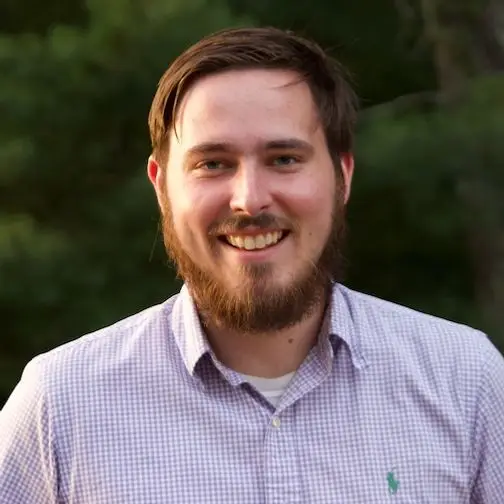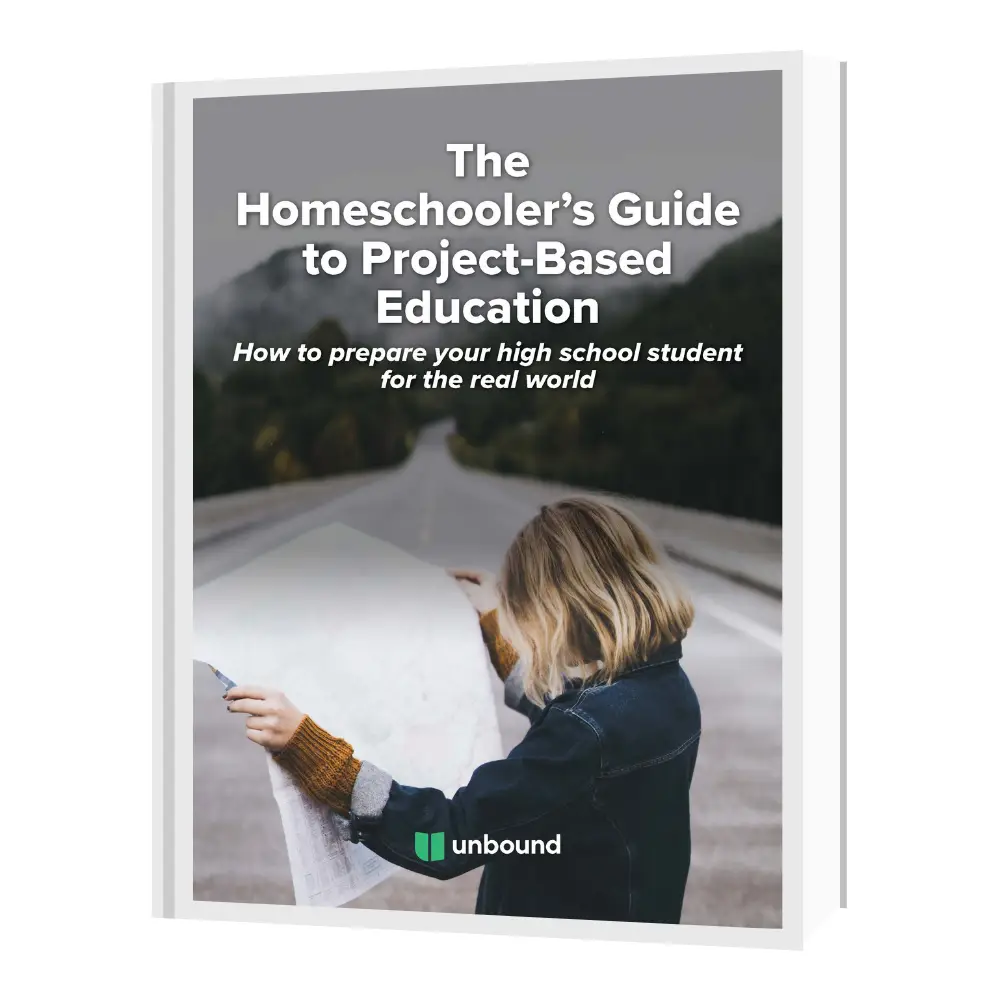Help Your Student Monetize Their Creative Interests

The Problem with Higher Education Programs Designed for Creatives
Lacking essentials
Most higher education programs designed for creative students lack two essential pieces: business education and professional development training.
College students pursuing the arts spend years honing their craft without ever being taught the basics of business or entrepreneurship that would set them up for success outside of the classroom.
Stranded graduates
This faulty approach to post-secondary education for creative students results in extremely talented young people left stranded after graduation without the professional network or business skills needed to make a living through their creative specialties.
So what are the alternative options for these students?
The State of Post-High School Education
Doubt and disruption
The state of post-high school education in America is in a critical time of transition. The pre-determined path from high school to college to career has been disrupted.
Many high school students are beginning to doubt the value of going away to school for four years, accumulating massive debt, and graduating with a credential that no longer sets them apart in, or even prepares them for, the job market.
The future of education in your inbox.
Get productivity tips, commentary, and Unbound updates sent to you!
These factors (and others) have resulted in a major exodus from traditional higher ed in the last several years.
The data speaks for itself
Some sources estimate that 50% of parents are not planning to send their children to college in the Fall. Even more data suggests that enrollments are dropping due to “skepticism about whether degrees are worth the time and money”.
Certificates and On-the-Job Training
In the place of four-year degrees, the emphasis has shifted to certificates and on-the-job training.
It’s a fluid job market where career positions are less likely to be the aim of young professionals, who instead opt for flexible and nimble work situations.
What young people want today
Young people want to be equipped with practical skills that enable them to find good work in the fields they’re interested in.
The current generation of high school students and recent graduates care far less about earning a degree in a specific field just to graduate in time for everything they learned to be rendered obsolete by the breakneck pace of change in a quickly evolving technological world.
Young people want to get training for a job they can see themselves in six months from now. Not theoretical training for a career that will take them five to ten years to reach.
There’s a sense in which long-term planning and preparation is really good. But it should be coupled with an active pursuit of hands-on experience in the short-term.
Overall, a more nimble approach to professional development is more likely to serve students in this fast-paced job market.
Where young people are going to get the training they need
Certificates and on-the-job training
As a result, many students are turning to certificate programs that offer benefits like flexibility, short timelines, and hyper-relevant job training. Many of these certificate programs focus on industries like programming, data analytics, IT, and project management.
However, there is still a need for training for young people with their eyes on a more “liberal arts” career trajectory.
The wrong focus
Where should your money be going?
There’s a bit of a paradox here: the liberal arts are still needed and very important. And yet, paying tens of thousands of dollars to sit in classrooms to learn how to write by analyzing fifteenth-century poets is probably not what this generation of writers needs.
Likewise, most creative training done at the post-high school level (i.e. college level) focuses on history and theory and never even gets to real world application.
Tens of thousands of dollars for… what?
There’s a lot to learn from art history or the various schools of thought in poetry. Reading the great poets and writers of centuries past has its value. But that value rarely reaches the level of tens of thousands of dollars and four years out of one’s life.
This is especially true considering that most of the great literature of our world’s history can be accessed through a library or even a laptop.
A need for practical training
What post-high school education should do for students
Post-high school education for writers, artists, filmmakers, etc. should equip students to take their craft into the professional world.
These programs should give students a foundation in business and entrepreneurship skills that will help them to succeed as professional creators in the real world.
Unbound is filling the gap
Unbound sees this need for practical, creative training for young adults. We see the opportunity open to many students who are looking for relevant training in areas like writing, art, and filmmaking.
Essentially, it’s like the certificate programs mentioned earlier, but for writing instead of programming.
Unbound’s Ascend Tracks take the benefits of “on-the-job training” and apply them to creative interests like writing, art, and filmmaking.
Amanda, Scenario 1
Take Amanda. Amanda is a fictional person used for the sake of illustration here. But there are thousands of “Amandas” across the country, maybe even in your own home.
Meet Amanda
Amanda is 17 years old and has a passion for writing novels. She wants to be a novelist when she “grows up”. But she’s not sure how she’s going to achieve that goal.
The traditional option
The “traditional” path ahead of her includes enrolling at a local college and earning a bachelor’s degree in English. It’s good to have a college degree after all, she thinks, and English is the closest degree she can get to writing.
But what is the likely outcome of this path?
The traditional outcome
More than likely, Amanda will go to college, get an English degree, probably go into debt to get said degree and graduate no closer to her dream of being a novelist than when she began.
After all, big-name publishers don’t just run through a list of recent English-degree grads when they start offering contracts for a new book.
Amanda’s expected future
More than likely, Amanda will be left with lots of debt, a burden for writing novels, and an entry-level job somewhere that doesn’t involve writing novels but does involve earning a small paycheck towards paying off those loans.
Not exactly what our ambitious 17-year-old had in mind.
Amanda, Scenario 2
Instead, imagine this scenario.
Meet Amanda 2.0
Amanda is 17 years old and has a passion for writing novels. She’s started a few manuscripts during her teenage years but hasn’t finished anything yet. She loves character development but struggles to actually write a whole story from beginning to end.
The non-traditional option
Amanda utilizes a writing coach who helps her organize her work and actually complete a manuscript. But more than that, they help her generate an income through her passion.
You see, this coach actually has experience in writing and publishing works of fiction. They have their work in print. They’ve traversed the world of publishing and now they use that experience to help Amanda navigate her next steps.
The non-traditional outcome
Amanda wraps up her coaching mentorship with her writing coach and now has the following in place:
- A finished manuscript,
- Guidance on the “business” side of writing creatively,
- A written business plan for her writing career,
- A network of publishers and other writers who can help her with her next step,
- And more.
She is much more equipped to actualize her dream of writing as a career with this “on-the-job” experience.
That’s exactly what students like Amanda receive in Unbound’s Ascend Tracks. The specialty tracks for writing, art, and film don’t just help students master their craft, they help them learn how to generate an income through it.
Reality Check
Pair talent and creative skill with business training for the best results
Let’s face it: the most successful novelists aren’t always the ones who write best. The most successful filmmakers aren’t always the ones with the best films.
It’s the people who can sell what they create that make a living in creative disciplines like art, writing, and film.
Relevant training from relevant professionals
Your creative-minded student can make money from their creative interests. They just need to know how.
The specialty tracks in Ascend are designed to help your student through personal guidance from experienced experts who have made a living in the same field of interest as your student.
Conclusion
Traditional higher education isn’t the answer
At the beginning of this article, we discussed several reasons why traditional higher education is no longer the best choice for young people seeking to launch successfully.
Traditional higher education burdens students with financial debt and often lacks real-world application and the kind of practical training that will enable your student to work fluidly in an ever-changing market.
Instead, we recommend that students join the Ascend program.
Who is Ascend for?
We aren’t afraid to admit our bias.
We genuinely think the Ascend program is a better option for most students. Particularly, for students with creative interests in areas like film, writing, or art, the Ascend program will provide the network and the practical training necessary for them to generate an income with their passion projects.
The need the Ascend meets
Society needs creative young people who are dedicated to using their gifts for the glory of God. But it also needs those young people to be competent enough in business and organization that those gifts are utilized well and don’t go to waste.
The key to success in Ascend Specialty Tracks
Personal coaching and training by experts in the field is a key bridge to help young creatives learn how to master and monetize their creative interests.
In Ascend Specialty Tracks, students substantially improve their creative skills through practical, hands-on instruction. They receive customized feedback and support from professionals in their field and collaborate with like-minded artists while completing relevant internships and projects.
Of course, on top of this are the numerous benefits of Ascend that all students of the program enjoy. These include a strong Christian community, quarterly live events, practical skills training, and more.
The potential for your student
Many students like the fictional Amanda above exist right now all across the country.
These students have amazing potential to live extraordinary lives for the glory of God. But the choices they make now about how to prepare for that life will have an impact on whether they reach that potential or not.
Get Started Today
Interested in learning how your student can turn their creative interests into a viable career path? Talk to our admissions team by booking a free consultation call today. We’d love to talk with you about your student and whether or not they are eligible for the Ascend program.




